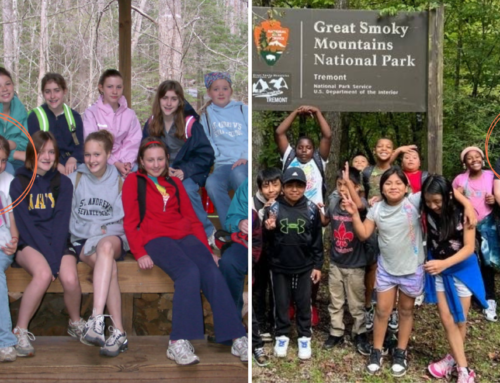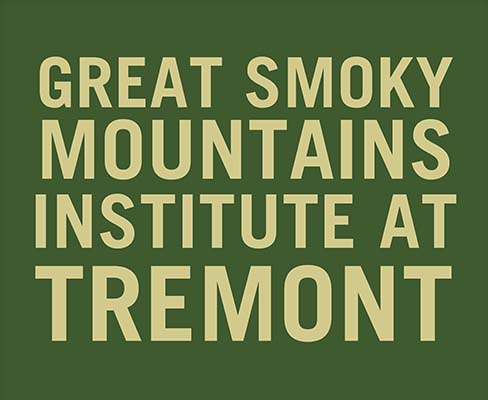A big part of our mission is to have a positive impact on teachers and empower them to conduct more and better experiential education during their school year. We now have a new tool to help us get there.
We spent some time considering literature on experiential education and analyzing what makes a Tremont experience powerful. We realized that if we had a way of describing the components, it would help our ability to train staff, train classroom teachers, and model during our school programs and teacher professional development.
So we devised the Tremont Institute Education Cycle.
This cycle describes components we feel are critical to the type of experience that changes our lives, that really makes us think differently. It has close parallels to other cycles developed for classrooms, but ours puts more emphasis on observation, a sense of wonder, and the art of reflection. It is rooted in experience and engages curiosity and critical thinking. As schools across Tennessee take up the new TN Science Standards, they will need to get their students DOING this type of learning, and we want to help them to do it better!
Take a walk through our cycle and imagine this were the ‘norm’ in your local classrooms and schoolyards… then we hope you will get as excited as we are about spreading the news and training an army of experiential educators!
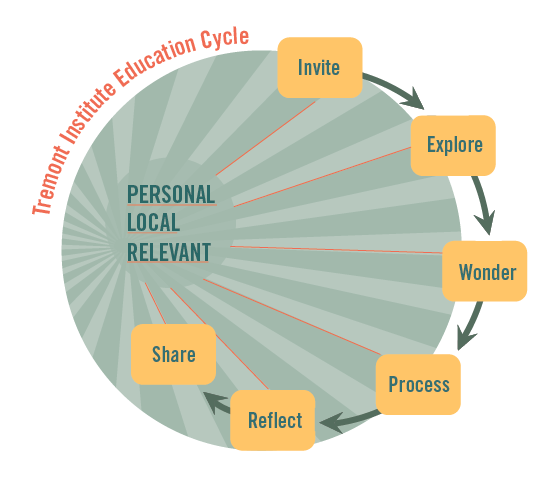
Invite
This is the entry point for engaging in the learning process. It may be a provocative question, an unusual experience, an anomaly in the data, or just something that catches your eye and grabs your attention. Like an ant walking across a mossy rock, an otter ambling over a log, or a crescent shape chewed in a leaf.
Explore
‘Exploring’ means to engage all our faculties to take in the whole scene, from as many perspectives and lenses as possible. This may be entirely open-ended or guided, but the focus is on developing and applying the skills of observing, noticing details, and discerning patterns. Like any good investigator, we avoid jumping to conclusions or giving easy answers, instead taking time to experience fully. We have noticed too often educators start with a question but neglect the power of exploration and observation that should precede it.
Wonder
Before long, exploration gives way to gasps, exclamations, and a flood of questions based on the experience. Here we take advantage of a double entendret—‘wonder’ can be an exclamation point, as in WOW! ‘Wonder’ can also be a question mark, as in “I wonder why…?” This is time to ask questions and to appreciate the beauty, mystery, and complexity of the world around us. From here, the sense of wonder could lead to scientific investigation, creative output, personal insight, or a richer more nuanced worldview. This stage is driven by excitement, discovery, and glimpses of the mysteries of the natural world. This is time to elicit prior knowledge or experience. Did what we think before match up to what we observed? When learners ask good questions, we consider it to be an excellent indicator of thinking and active learning with both !’s and ?’s.
Create
This is what you DO with your observations, wonder, and questions. Depending on your path, this stage may lead to:
•experimental design
•data collection & analysis
•drafting a sketch
•outlining a story
•generally following your inspiration
Learning to learn means constructing new concepts and understandings based on experience and new information. Here we may consult resources and experts to decide what information or tools might help us on our journey of discovery. We feel this should involve struggle as we grapple with the experience in light of our prior knowledge. What do we make of this experience?
Reflect
Experiences alone may be memorable, but deliberately engaging in the process of reflection can amplify their meaning in our lives. We reflect on our struggle, discern meaning, draw conclusions, and decide what personal implications emanate from the experience. This is another often-neglected step in the learning process, but we feel it is paramount for learners of any age. Whether the process was scientific discovery or artistic endeavor (or a combination of the two), has our
worldview changed; and, if so, do we behave differently as a result to realign our actions to our new understanding?
Share
When you really engage in this process, and struggle to attain a new understanding of the world, the natural inclination is to want to share it. This may be research results, a magazine article, a work of art, or simply a quick conversation with friends and family. We feel called to also share the sheer joy of discovery learning itself, seeking to spread our deeply held conviction that our world is full of mystery and wonder, and learning more about it is both rewarding and FUN.
This new Tremont Education Cycle and all of our programs start with curiosity and end with fun—now we want to help teachers everywhere engage their students in the same process back at their schools. Shouldn’t this be what education is about?!
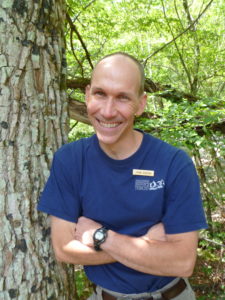
Article by John DiDiego, education director
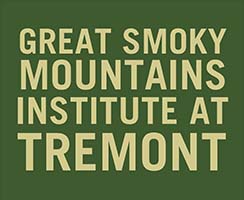
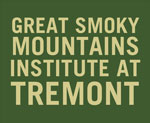
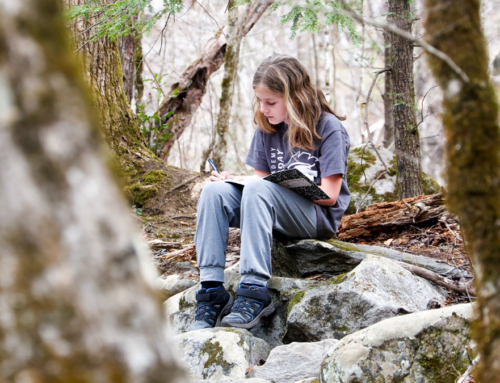
![A Deep Dive Into Wetlands [Free Lesson Plan]](https://gsmit.org/wp-content/uploads/2024/02/madeline-blog-cover-500x383.png)
![Are You a Math and Science Person or a History and English Person? [Free Lesson Plan]](https://gsmit.org/wp-content/uploads/2024/01/Girls-in-Science-Erin-Rosolina-3-1-500x383.jpg)
